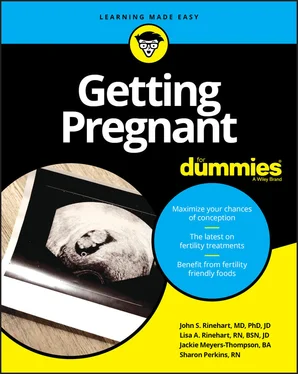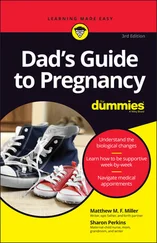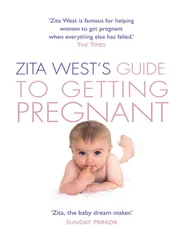Avoiding toxins at home and away
 Changing your job isn’t always easy, but you do need to consider potential exposure to dangerous substances and take steps to protect yourself from them. Here are some examples:
Changing your job isn’t always easy, but you do need to consider potential exposure to dangerous substances and take steps to protect yourself from them. Here are some examples:
Think about substances that you’re exposed to at work. For instance, if you’re a home remodeler, bridge painter, welder, or solderer, you may be exposed to large amounts of lead. You run the same risk if you’re remodeling an old house and scraping old paint off the walls. Lead exposure in men has been linked to low sperm count and decreased motility of sperm. In women, lead exposure may cause low birth weight in babies, high blood pressure during pregnancy, damage to the baby’s nervous system, and developmental delays.
Heavy, exertional work can lead to reduced sperm counts, but there is little evidence about the effect of this on actual fertility rates.
The advent of OSHA (the federal Occupational Health and Safety Agency) has provided safe work environments for almost all occupations. Since this is true, it is hard to imagine that there are strong negative influences on fertility rates based upon occupations. In fact, even though OSHA lists a few known toxins that could affect fertility (nitrous oxide, lead, jet fuel, and a variety of pesticides), it clearly states that these substances may not affect all workers, or all workers in the same way.
There are a few studies that identify some environmental toxins that may (emphasis on the possibility, not the probability) impact a person’s infertility. These include hexachlorocyclohexane, polychlorinated biphenyls (PCBs), dichlorodiphenyltrichloroethane (DDT), some pesticides, and ingested heavy metals (mercury and lead).
 The impact of any potential toxin on a given individual’s fertility potential depends upon the intensity of the exposure to the toxin. You cannot assume that casual exposure is at the root of your infertility problem. When in doubt, please check with your doctor about your specific concerns.
The impact of any potential toxin on a given individual’s fertility potential depends upon the intensity of the exposure to the toxin. You cannot assume that casual exposure is at the root of your infertility problem. When in doubt, please check with your doctor about your specific concerns.
Making the connection between stress and fertility
Can stress keep you from getting pregnant? First of all, what is stress? One Google definition is “a state of mental or emotional strain or tension resulting from adverse or very demanding circumstances.” However, a key factor resulting in elevated stress is the person’s reaction to a situation. Some circumstances create more stress for some people than for other people.
 STRESS AND ACTIVITY ARE NOT THE SAME
STRESS AND ACTIVITY ARE NOT THE SAME
Dr. R: I remember one patient who had a very achievement-oriented, high-powered North Shore Chicago–type job. She found not being able to conceive at her command almost intolerable since for most everything else she had tried she was successful. Somehow, she was convinced by well-meaning friends and family that if she would only relax, she would become pregnant. So, she quit her job and stayed at home eating well and exercising. Since she was not working, she could devote every waking moment to her quest. After about two weeks of “rest” she was climbing the walls with boredom and her stress level was truly off the charts. She went back to work, adjusted her schedule to allow her to pursue treatment protocols, and fortunately, after considerable work and persistence, she had her first child. Child number two came as a complete surprise since not everything was perfect yet for that second child. The point: Many active people need to maintain a certain level of activity to control their stress. Don’t confuse activity with stress.
Full disclosure: Dr. R is not a firm believer that stress is a significant cause of infertility. He is a strong believer that infertility causes stress. To that end, anything that will reduce your stress and allow you to pursue treatment is desirable.
 The literature about stress and infertility is not clear. A recent literature review concluded that there was no clear cause-effect relationship between infertility and stress. This was due to the conflicting results of the many studies and the lack of ways to objectively measure stress.
The literature about stress and infertility is not clear. A recent literature review concluded that there was no clear cause-effect relationship between infertility and stress. This was due to the conflicting results of the many studies and the lack of ways to objectively measure stress.
What can you do to reduce stress? We talk more about stress-reducing techniques in Chapter 9, but in general:
Talk it out. Stress increases when you hold everything in.
Try to focus on the “big picture.” When you’re trying to get pregnant, every failed month seems like a year — or the end of the world. When you finally do get pregnant, it won’t matter whether you got pregnant in November or January. Remember that the odds are on your side, in most cases, and that you will get pregnant.
Don’t lose sight of the rest of your life. While trying to have a baby may be a big part of your life at this moment, it’s not the only thing you have going on in your life. Make time for your family, your partner, your friends, your hobbies — and anything else that helps you remember that you had a life before you started thinking about pregnancy, and you still do!
Getting Checked Out from Top to Bottom
Having a checkup even before you try to get pregnant is always a good idea, and it’s essential if you’ve been trying for a few months and still getting “not pregnant” results on the home pregnancy tests. Sometimes simple imbalances in your thyroid levels, or other levels easily checked by a simple blood test, can be keeping you from getting pregnant.
You can see either your primary care physician (PCP) or your gynecologist for a checkup — or both! Your PCP looks at the “big picture” while your GYN looks mainly at your reproductive issues. Either one can order blood work and do a physical exam. (See Chapter 8for more on choosing a doctor to help you get pregnant.)
Do you need to book a full body MRI or CT scan to find out if you’re in shape to get pregnant? No, a half hour with your doctor should do the trick. If you’re putting off a visit because you’re afraid of being “yelled at” because you’re overweight, have bad habits you know you’ll be lectured about, or are terrified of having blood drawn, now is the time to put those fears aside.
A routine checkup by your gynecologist or family doctor may be all you need to help you get pregnant; for example, your doctor can look at the following possible pregnancy stumbling blocks:
Your weight: Are you underweight or overweight? Being either over- or underweight may interfere with pregnancy.
Your sexual practices: Are you missing the big day each month because you’ve been misinformed about when you ovulate?
Your sexual history: Do you have a sexually transmitted infection (STI) that could be preventing pregnancy? (See the section, “ Understanding Common Infections That Can Cause Uncommon Results” for more on STIs.)
Your habits: Do you douche right after sex? You may be washing some of the best swimmers away!
Your blood pressure: Women with high blood pressure may be prone to developing serious hypertensive disease during pregnancy.
The physical exam includes examination of the thyroid gland in the neck, breasts, heart, lungs, abdomen, and reflexes (for neurologic response). A pelvic exam includes a vaginal speculum exam to evaluate the cervix (this generally means a PAP smear!), a bimanual exam to assess ovaries and uterus, and a rectal/vaginal exam. A transvaginal ultrasound frequently completes the initial pelvic exam so that your ovaries and uterus can be visualized.
Читать дальше

 Changing your job isn’t always easy, but you do need to consider potential exposure to dangerous substances and take steps to protect yourself from them. Here are some examples:
Changing your job isn’t always easy, but you do need to consider potential exposure to dangerous substances and take steps to protect yourself from them. Here are some examples: The impact of any potential toxin on a given individual’s fertility potential depends upon the intensity of the exposure to the toxin. You cannot assume that casual exposure is at the root of your infertility problem. When in doubt, please check with your doctor about your specific concerns.
The impact of any potential toxin on a given individual’s fertility potential depends upon the intensity of the exposure to the toxin. You cannot assume that casual exposure is at the root of your infertility problem. When in doubt, please check with your doctor about your specific concerns. STRESS AND ACTIVITY ARE NOT THE SAME
STRESS AND ACTIVITY ARE NOT THE SAME










